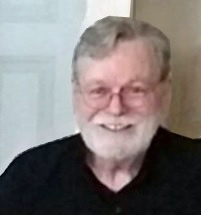
Stephen
Terry, Director


The
Lord Hears and Delivers
Commentary
for the January 27, 2024, Sabbath School Lesson
 "For
you created my inmost being; you knit me together in my mother's womb. I praise
you because I am fearfully and wonderfully made; your works are wonderful, I
know that full well. My frame was not hidden from you when I was made in the
secret place, when I was woven together in the depths of the earth. Your eyes
saw my unformed body; all the days ordained for me were written in your book
before one of them came to be." Psalm 139:13-16, NIV
"For
you created my inmost being; you knit me together in my mother's womb. I praise
you because I am fearfully and wonderfully made; your works are wonderful, I
know that full well. My frame was not hidden from you when I was made in the
secret place, when I was woven together in the depths of the earth. Your eyes
saw my unformed body; all the days ordained for me were written in your book
before one of them came to be." Psalm 139:13-16, NIV
The art of the potter is an ancient
skill with pots mentioned frequently throughout the Bible. However, the 1990
movie "Ghost," starring Patrick Swayze and Demi Moore, put the potter's wheel
on a new level of romance and intimacy as "Unchained Melody" by the Righteous
Brothers plays in the background.[i]
While the movie, as the title implies, is based upon the living being able to have
interaction with the dead who exist in a ghostly afterlife, something anathema
to Seventh-day Adventist dogma, the symbolic link between life, its vicissitudes,
and the art of the potter are profound and biblical. Paul used the illustration
of the potter's relationship to his creation as an illustration of God's
relationship to each of us.[ii]
It is not hard to visualize God
as a divine potter. Genesis tells us of God reaching down into the dirt and
forming man from that alluvial soil watered by artesian springs.[iii]
Woman, being derivative of man would naturally be of similar composition except
for the differences needed for fulfilling their procreative purpose. Just as a
potter has a purpose in mind for each vessel created, God's intent for humanity
was to fulfil a threefold purpose. They were to reflect God's image, have
dominion over creation on earth, and to multiply offspring to fill the earth.
Since God is love,[iv] it would not be
unreasonable to expect his image to be one of love and compassion. However, we
seem to have strayed far from that ideal with untold millions swept into graves
prematurely as greed and lust have displaced empathy in the hearts of humanity,
and we have warred ceaselessly upon one another.
We also seem to have failed in
exercising any sort of dominion over our planet. Many species have gone extinct
under our care. The oceans, the land, and the air teem with pollutants from
micro plastics to forever chemicals. These things are not only destroying the
ecosystem and poisoning the flora and fauna we rely on as part of the
biological web that sustains all life on the planet, but they have also entered
our own bodies through the air we breathe, the water we drink, and the food we
eat. Chronic disease and immune system failure have become endemic to humanity.
It is hard to believe that a God of love ever intended this to be a part of humanity's
purpose.
The only thing we seem to have
taken delight in fulfilling is filling the earth with our species to the tune
of over eight billion of us. Sexually transmitted diseases, genocides, plagues,
nothing seems to have slowed us down when it came to fulfilling this purpose.
We have fulfilled it so well that it has become ever more difficult to find
room for the other two purposes. Despite that, some still try to be loving, to
exercise compassionate care of the earth and its myriad species, and to
procreate responsibly. But they are in the minority and often ridiculed by the
rest. Nonetheless, all of nature patiently waits for a deliverance from this narcissistic,
greedy rule it has been subjected to.[v] In
the meantime, those who truly are the children of God, made in his image, do their
best to bind up the wounds and stop the suffering and killing that plagues our
planet, hoping, along with the rest of creation, for the deliverance promised
as they strive to keep the flame of love kindled in their hearts. Jesus said
that it would be a challenge to endure under these conditions, but that those
who do will be rewarded.[vi] However,
even he was concerned about how difficult it would be for faith to survive in
such an environment.[vii]
We may look at all the evil that
surrounds us, the fear, the anger, the violence, and question whether God even
exists. If he is loving, why is evil allowed to persist? Why doesn't he destroy
evil and its source? It seems a strange question to ask and says more about
where our own hearts are rather than where God is. It betrays hearts that are
very much like those who we feel should be wiped from the earth. It is the same
attitude replicated repeatedly in humanity, the idea that power determines what
is right. This is a sentiment we have seen scores of times each week on
television, in movies and music, in literature, and in social media. The strong
ridicule the weak. The weak then destroy those oppressing them using weapons
capable of terminating the lives of all those who dare to even taunt us. We
have been conditioned through countless television episodes that the solution
to every problem the bad guys would throw at us is a gun. Even if we have no
gun, superior martial arts skills can also destroy our enemies. I remember
during the Kung Fu and Karate craze of the 1970s going to movies on the army
base where I was stationed, and after the movie, all the young men who watched
the movie would exit the theater jumping around and simulating karate kicks and
punches, fully indoctrinated in the idea of overcoming life's challenges
through brute force.
All the tumult has drowned out
the still, small voice of God speaking to us.[viii]
The world of humanity is a raucous place. The sounds of nature tend to be pleasing
and calming to our hearts and minds. To that mix, we have added as much bombastic
noise as our technology can muster. From loud music to banging and hammering machinery,
escape to placidness seems ever more elusive. I cannot help but wonder whether
this is by design. For amid all the noise, if we cannot hear the distress of
nature which we are supposed to be exercising empathy and compassion toward,
how can we hope to hear the voice of God. Nonetheless, he still speaks and will
direct our way if we stop trying to drown him out with our own noise.[ix]
God has created each of us with just
as much purpose as he created humanity in the beginning. Life should not be an
endless cycle of births and deaths without purpose. Sometimes the world's
desperate need for love can seem overwhelming when we consider loving over eight
billion souls, but we must not forget that God has placed us where we are as
part of that purpose. Our acts of love and compassion may not reach billions of
people on the other side of our planet, but we can love where we find
ourselves. It is possible to feel love for all of humanity while expressing it
personally to those at hand. That love, like a pebble tossed into a pond, will
ripple through humanity. The Spirit of God can carry and enhance it as it
passes through the hearts of those we may never meet. Love is like light. Once
lit, it cannot be extinguished. The darkness has no power to put out the light
of a single match in a dark room. That power of light shines in Jesus, who is
referred to as the light of the world by John the Apostle.[x]
Jesus was also called the Word
by John in the same passage. He told us that the scriptures bear witness about
him.[xi]
Therefore the light that he brought into the world was foretold by scripture.
The light of that scripture is profitable for us as we learn to listen to that
whisper of God's voice speaking to our hearts. When we read the Psalms, we
encounter the words of those who listened for that voice and became accustomed
to speaking to God. They knew him to be as real as the food they ate and the
water they drank. The patriarchs and kings recognized God's voice even if it
came to them through the words of three travelers on the way to Sodom, or
through the words of a prophet to a straying king. It was no less dangerous to
speak for God then than it is now. Yet they persevered. It may seem to us at
times that we alone are loving others along with God against the entire world's
enmity. That is how Elijah felt after the pyroclasm on Mount Carmel. He desperately
wanted to see God wipe out evil without delay. In fact, he decided to do it
himself on God's behalf, ordering hundreds to be slain that day. But in the end,
he realized the error of his course and fled for his life, afraid others would
do to him as he had done. Elijah learned that God is in the stillness, not in
the violence. This is a lesson so many who proclaim they are faithful to God, just
as Elijah did, need to learn. Then maybe the quietness of that love can produce
the spiritual transformation that will carry them to heaven one day as it did
Elijah.